Rebels declare victory in east Ukraine vote on self-rule
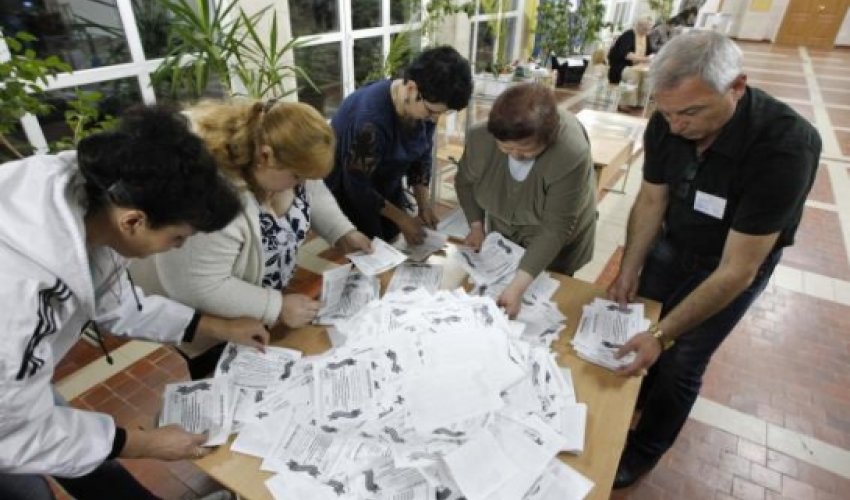
Pro-Moscow rebels declared a resounding victory in a referendum on self-rule for eastern Ukraine, with some saying that meant independence and others eventual union with Russia as fighting flared in a conflict increasingly out of control.
Organizers in the main region holding the makeshift vote on Sunday said nearly 90 percent had voted in favor.
Well before polls closed, one separatist leader said the region would form its own state bodies and military after the referendum, formalizing a split that began with the armed takeover of state buildings in a dozen eastern towns last month.
Another said the vote simply showed that the East wanted to decide its own fate, whether in Ukraine, on its own, or as part of Russia.
"Eighty-nine percent, that's it," the head of the separatist electoral commission in Donetsk, Roman Lyagin, said by telephone when asked for the result of a vote that the pro-Western Ukrainian government in Kiev has condemned as illegal.
Sunday's vote went ahead despite a call by Russian President Vladimir Putin on Wednesday to postpone it - a move that briefly raised hopes for an easing of tension. Western leaders have accused Putin of destabilizing Ukraine, a charge Moscow denies.
The European Union declared the referendum illegal and prepared to increase pressure on Russia on Monday by taking a first step towards extending sanctions to companies, as well as people, linked to Moscow's annexation of Ukraine's Crimea region.
A festive atmosphere at makeshift polling stations in some areas belied the potentially grave implications of the event. In others, clashes broke out between separatists and troops over ballot papers and control of a television tower.
Zhenya Denyesh, a 20-year-old student voting early at a university building in the rebel stronghold of Slaviansk, said: "We all want to live in our own country". But asked what he thought would follow, he replied: "It will still be war."
In the southeastern port of Mariupol, scene of fierce fighting last week, there were only eight polling centers for a population of half a million. Queues grew to hundreds of meters (yards) in bright sunshine, with spirits high as one center overflowed and ballot boxes were brought onto the street.
On the eastern outskirts, a little over an hour after polls opened, soldiers from Kiev seized what they said were falsified ballot papers, marked with Yes votes, and detained two men.
They refused to hand the men over to policemen who came to take them away, saying they did not trust them. Instead, they waited for state security officers to interview and arrest them.
On the edge of Slaviansk, fighting broke out around a television tower shortly before people began making their way through barricades of felled trees, tires and machinery for a vote the West says is being orchestrated by Moscow. The Ukrainian Defense Ministry said one serviceman was wounded.
A man was later reported killed in a clash in the eastern town of Krasnoarmeisk, Interfax-Ukraine news agency said, adding to a toll so far in the dozens but creeping higher by the day.
MORE SANCTIONS LOOM
Western leaders, faced with Russian assertiveness not seen since the Cold War, have threatened more sanctions in the key areas of energy, financial services and engineering if Moscow disrupts a presidential election planned in Ukraine on May 25.
EU officials have prepared a list of 14 people and two Crimean companies active in the energy sector that ministers are likely to add to the EU sanctions list, EU diplomats said.
But the EU will remain far behind the United States in the severity of the sanctions it has imposed on Russia. Some European governments fear tough trade sanctions on Russia could undermine their own economies, just recovering from the financial crisis, and provoke Russian retaliation.
Moscow denies any ambitions to absorb the mainly Russian-speaking east, an industrial hub, into the Russian Federation following its annexation of the Black Sea peninsula of Crimea after a referendum in March.
But in a sign it may have set its sights beyond Crimea, Russian Deputy Prime Minister Dmitry Rogozin said he had brought a petition by residents of Moldova's Russian-speaking breakaway region of Transdnestria backing union with Russia.
Ukraine's Interior Ministry called the eastern referendum a criminal farce, its ballot papers "soaked in blood". One official said two-thirds of the territory had not participated.
Ballot papers in the referendum in the regions of Donetsk, which has declared itself a "People's Republic", and the much smaller Luhansk, were printed without security provision, voter registration was patchy and there was confusion over what the vote was for. Separatists in Luhansk said only 5 percent had voted against.
A man who identified himself as a 33-year-old engineer with the first name of Sergei, voting in the industrial center of Mariupol, said he would answer "yes" to the question printed in Russian and Ukrainian on the ballot: "Do you support the act of state self-rule of the Donetsk People's Republic?"
"We're all for the independence of the Donetsk republic," he said. "It means leaving behind that fascist, pro-American government (in Kiev), which brought no one any good."
AUTONOMY, INDEPENDENCE, ANNEXATION
But in the same line of voters, 54-year-old Irina saw a "yes" vote as endorsement of autonomy within Ukraine.
"I want Donetsk to have its own powers, some kind of autonomy, separate from Kiev. I'm not against a united Ukraine, but not under those people we did not choose, who seized power and are going to ruin the country," she said.
Others see the vote as a nod to absorption by Russia. Annexation is favored by the more prominent rebels.
The current Ukrainian government came to power when President Viktor Yanokovich was toppled in February after mass protests in Kiev.
Pro-Western activists were angered by his decision to discard a cooperation accord with the EU in favor of closer ties with Moscow. They also accused him of corruption penetrating all areas of the Ukrainian state.
One leading separatist said Ukrainian troops would be declared illegal occupiers once results of Sunday's referendum were announced.
"It is necessary to form state bodies and military authorities as soon as possible," Denis Pushilin, a leader of the self-styled Donetsk republic said, according to Interfax news agency.
Lyagin, head of the rebel central electoral commission in Donetsk, also took a strong position on the results.
"That can be considered the final and official result," he said, reporting exact figures of 89.07 percent for and 10.19 percent against. "We demand the right to self-determination, and we will get it."
He said the result meant Ukraine's May 25 presidential election would not take place in the Donetsk region.
Speaking to reporters earlier, he had appeared to have a less radical position.
"With the announcement of the results, the status of the Donetsk region does not change in absolute terms. We do not cease to be a part of Ukraine, we do not become a part of Russia," he said, although he left those options open.
Moscow has massed troops on the border and Kiev fears they may be called in as peacekeepers. Serhiy Pashinsky, head of the Ukrainian presidential administration, said a column of armored vehicles on the Russian side of the border bore the colors of U.N. peacekeeping forces. He offered no evidence or detail.
"We warn the Kremlin that the appearance of these forces on the territory of Ukraine would be assessed as military aggression and we would react as we would in the case of military aggression," he told reporters.
(Reuters)
Bakudaily.az
























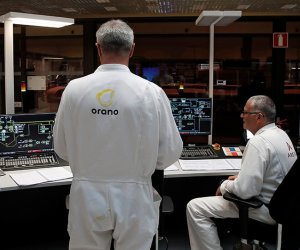
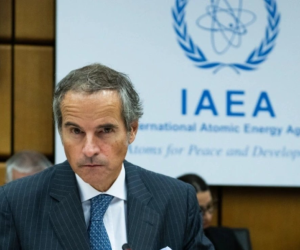
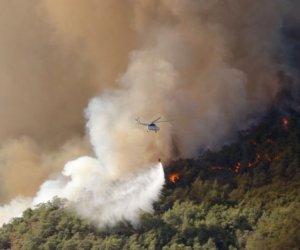
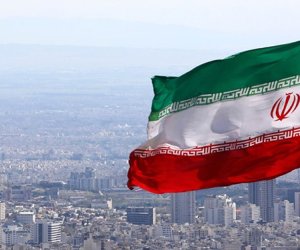
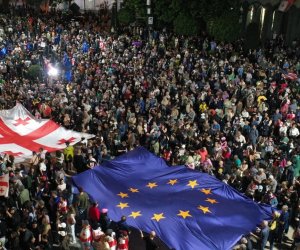
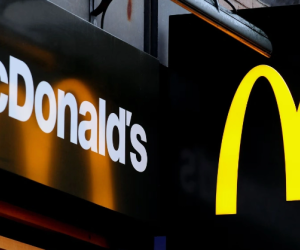
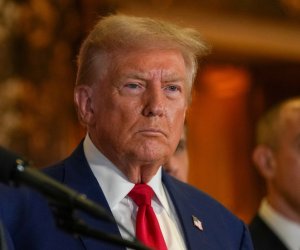
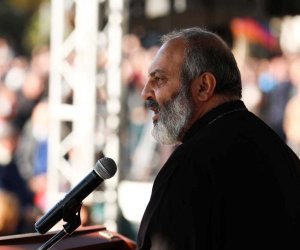
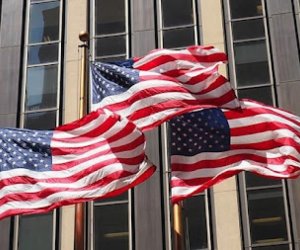



 Photo
Photo 



 Video
Video 

